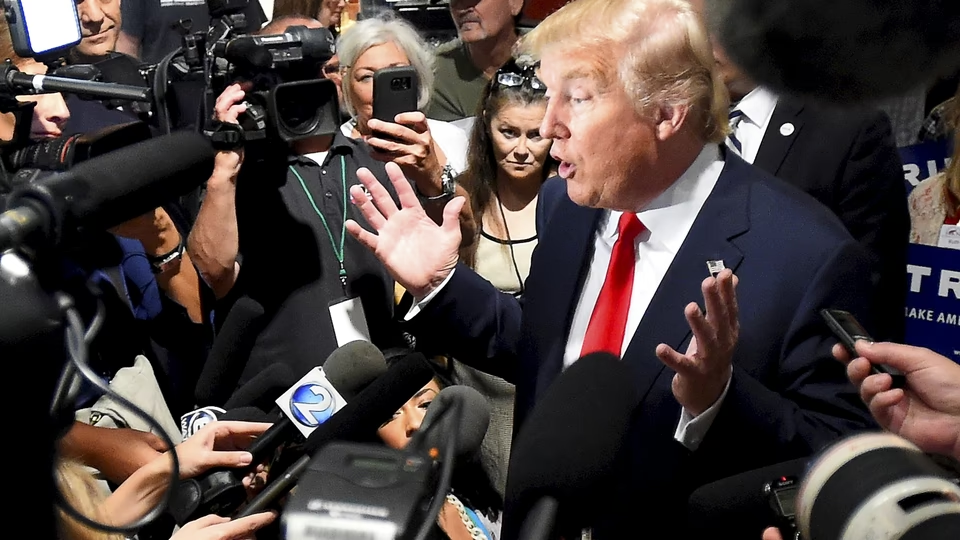Amid rising tensions over trade and geopolitics, India has pushed back against U.S. criticism over Russian oil imports, calling out the West’s “double standards” as former President Donald Trump threatens steep new tariffs on Indian goods.
In a sharp exchange of diplomatic and economic rhetoric, former U.S. President Donald Trump stated on Tuesday that he was unaware of his country’s ongoing imports from Russia. When asked specifically about the U.S. purchase of Russian uranium and chemical fertilisers, Trump told ANI, “I don’t know anything about it. I have to check…”
This statement follows his earlier remarks threatening to “substantially raise tariffs” on India within 24 hours, accusing New Delhi of purchasing large quantities of discounted Russian oil and “fueling Russia’s war machine” amid the Ukraine conflict.
However, India’s Ministry of External Affairs (MEA) has categorically rejected what it sees as unfair criticism. In a detailed statement, India defended its energy strategy and exposed ongoing trade relationships between both the U.S. and European Union with Russia, highlighting a clear double standard.
India Exposes West’s Continued Trade With Russia
The MEA revealed that the United States itself continues to import several key products from Russia, including:
- Uranium hexafluoride for the nuclear industry
- Palladium critical to the EV industry
- Fertilisers and chemical products
India also pointed to significant trade between Russia and the European Union, stating that the EU imported over €67.5 billion worth of goods from Russia in 2024, alongside €17.2 billion in services in 2023. Notably, European LNG imports from Russia hit a record 16.5 million tonnes in 2024, surpassing previous records.
The MEA’s response strongly defended India’s position, arguing that its trade with Russia was a “vital national compulsion” to ensure energy security and price stability amid global disruptions.
“Unlike our case, such trade [by the U.S. and EU] is not even a vital national compulsion. Hence, the targeting of India is unjustified and unreasonable,” said the ministry.
Trump’s Tariff Ultimatum
On August 1, Trump signed an executive order titled ‘Further Modifying The Reciprocal Tariff Rates’, which imposes increased tariffs on imports from more than 60 countries. For India, the tariffs have been escalated to 25 percent, with Trump threatening to raise them even higher within the next 24 hours.
In a telephonic interview with CNBC, Trump said:
“India has not been a good trading partner because they do a lot of business with us, but we don’t do business with them. So we settled on 25 percent, but I think I’m going to raise that rate quite substantially.”
These remarks have triggered alarm in trade and diplomatic circles, as the U.S. remains one of India’s largest export markets.
India’s Oil Strategy: Focus on Economic Stability
India, the world’s third-largest oil consumer, has dramatically increased its import of Russian oil since 2022. What once accounted for less than 1% of India’s crude intake now stands at nearly 40%, driven by steep post-sanction discounts. This move has allowed India to:
- Reduce its overall energy import bill
- Stabilize fuel prices for consumers
- Mitigate inflationary pressures
Experts estimate that if India is forced to pivot away from Russian oil, the country could face an additional $9–11 billion annually in energy import costs, further burdening the economy.
Indian oil companies are also refining Russian crude and exporting petroleum products—including to countries that have imposed direct sanctions on Moscow. This has boosted profits and helped maintain a delicate balance between economic necessity and geopolitical diplomacy.
Conclusion: A Diplomatic Flashpoint Emerges
The ongoing tariff threats and public rhetoric from the U.S. signal a diplomatic flashpoint that could strain one of the world’s most significant bilateral relationships. India’s firm stance—backed by data on Western trade with Russia—puts the spotlight on global inconsistencies in applying sanctions and evaluating strategic partnerships.
While Trump’s comments have stirred controversy, India’s response underscores a broader message: energy security and economic stability will not be compromised under unequal pressure.







